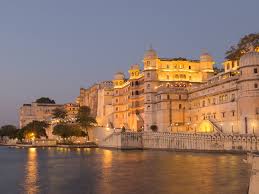Indore and Udaipur India’s First Wetland Cities
Current Affairs NationalPosted by newadmin on 2025-01-29 09:34:23 |
Share: Facebook | Twitter | Whatsapp | Linkedin Visits: 28

India recently celebrated a significant achievement as Indore and Udaipur became the first cities in the country to receive accreditation as Wetland Cities under the Ramsar Convention. This recognition highlights the crucial role wetlands play in urban areas and the importance of their conservation. The announcement, made just before World Wetlands Day, reinforces India’s commitment to sustainable urban development and ecological preservation.
The Ramsar Convention, an international treaty established in 1971, promotes the conservation and sustainable use of wetlands. With 172 member countries, the convention aims to ensure that wetlands provide ecological, economic, and social benefits to local communities. The Wetland City Accreditation initiative, introduced under the convention, recognizes cities that demonstrate a strong commitment to preserving and wisely managing their wetlands. To qualify for accreditation, cities must meet six international criteria, including effective conservation measures and the promotion of ecosystem services. In the latest accreditation round, 31 cities worldwide were added to the list, bringing the total to 74.
Despite being nominated for accreditation, Bhopal did not receive the recognition due to concerns raised by citizen groups. Proposed infrastructure projects posed potential threats to local wetlands, leading to apprehensions about environmental sustainability. This situation underscores the need for greater community involvement in decision-making processes related to wetland conservation.
Wetlands play a crucial role in urban ecosystems by regulating floods, supporting biodiversity, and providing recreational opportunities. In Indore, Sirpur Lake is being developed as a bird sanctuary, enhancing the city’s ecological diversity. Similarly, Udaipur’s wetlands contribute to the city’s cultural identity and help regulate its microclimate. These efforts highlight the broader significance of wetland conservation in ensuring sustainable urban growth and environmental resilience.
Search
Categories
Recent News
- Neves' Long-Term Commitment: Al-Hilal Secures Their Star
- Unveiling the Secrets of Seduction: China's Controversial Flirtation School
- Chanu's Triumph: Smashing Records, Lifting Spirits
- Williams Unveils New Challenger: FW48 Takes Center Stage
- Telangana's Security Alert: Revanth Reddy's Swift Action Post-Operation Sindoor
- Telangana High Court Orders Police Decision on Higher Ed Protest
- Hyderabad's Snake Charmer: Drunk Driver's Bizarre Escape Attempt
- Bengaluru's Vacant Plots Face New Penalty System
Popular News
- Navigating IPO Market Dynamics Amid Volatility and Regulatory Changes
- Massive Worldwide Microsoft Outage Disrupts Multiple Sectors
- Panjapur Bus Stand to Reshape TNSTC Routes
- తెలుగుదేశం పార్టీ - పేదరికాన్ని నిర్మూలించడంలో వాగ్దానం
- Universities Embrace Remote Learning Technologies Amidst Ongoing Pandemic